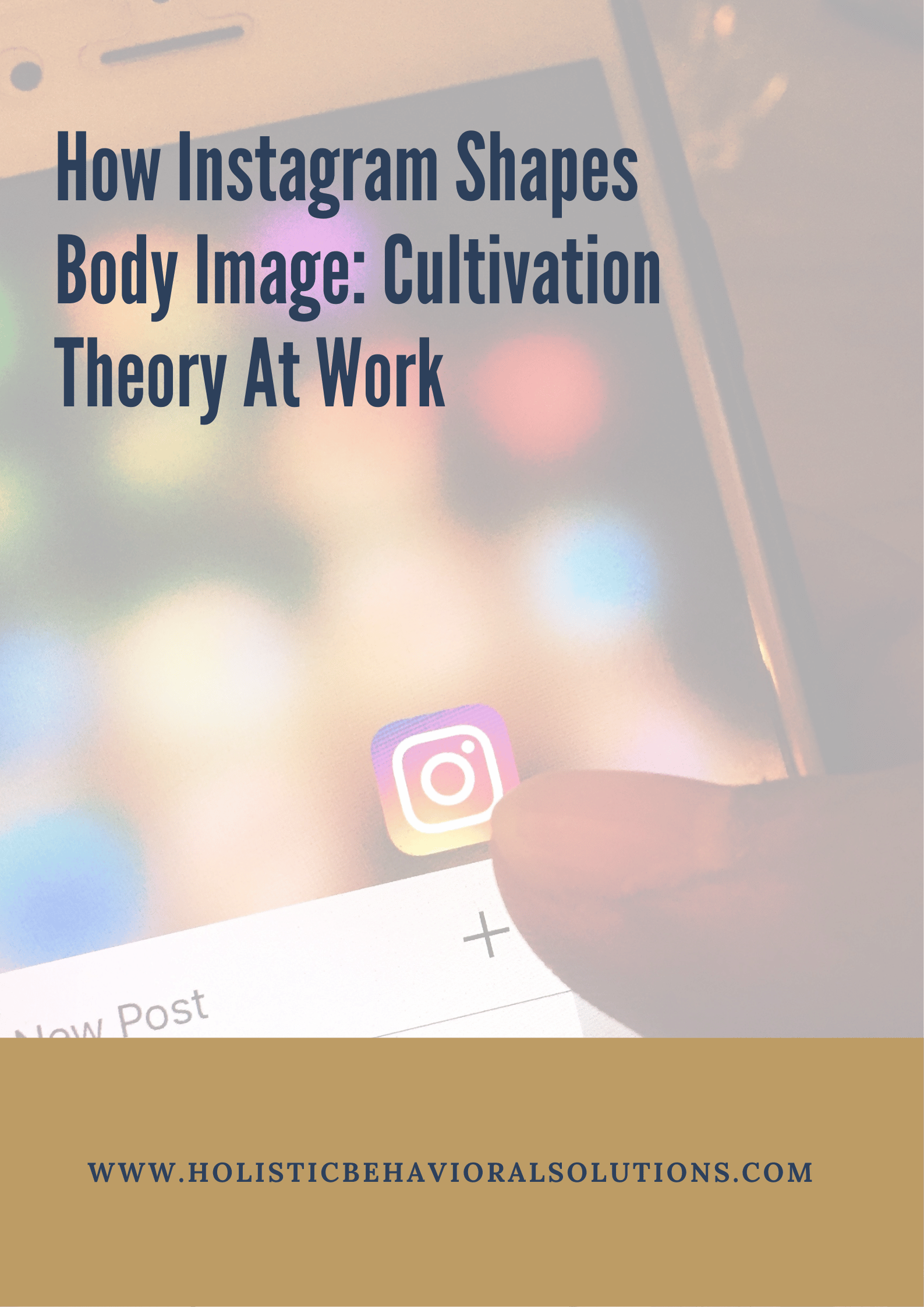
In today’s digital-first world, Instagram is more than just a photo-sharing platform—it’s a cultural force. For many young adults, it shapes daily routines, influences fashion choices, and perhaps most critically, it molds perceptions of body image. But what are the long-term effects of this constant exposure to filtered beauty?
A trending study by researchers Jan-Philipp Stein, Elena Krause, and Peter Ohler—published in Psychology of Popular Media—uses cultivation theory to unpack how Instagram content affects body image, self-perception, and mental health. Let’s break it down.
What Is Cultivation Theory and Why Does It Matter?
Cultivation theory originally explained how long-term television exposure could shape viewer beliefs. Today, it’s just as relevant—if not more so—with the rise of social media platforms like Instagram. Unlike passive TV consumption, social media offers highly curated and interactive content, which can have deeper psychological effects, especially around beauty standards and self-esteem. This heavily influences the way we think and, thus, behave.
Want to dig deeper into the theory? Read about Cultivation Theory and Media Impact
The Study: Instagram Use and Body Image in Young Adults
Researchers analyzed 228 participants aged 18 to 34 to assess how Instagram usage impacts weight-related knowledge, body attitudes, and eating behaviors. Instead of just looking at time spent on the app, they differentiated between quantity of use and quality of content engagement—a major advancement over older media research.
Key Findings on Instagram and Body Image
1. It’s Not Just Time Spent—It’s What You See
Time alone didn’t predict negative body image. What mattered most was content type. Participants who scrolled through public image-centric content (like influencer posts or “fitspiration”) were more likely to develop distorted perceptions of others and engage in disordered eating.
Learn how curated content skews body standards: Social Media, Body Image & Mental Health
2. Perception of Others vs. Self-Perception
Interestingly, Instagram influenced how users perceived others more than themselves. This suggests social comparison is externally triggered, reinforcing the idea that constant exposure to “perfect” bodies creates unrealistic expectations.
Explore more about social comparison in psychology: The Science of Social Media & Comparison
3. Cultivation Theory Enhances Social Comparison Theory
While social comparison theory explains direct peer comparison, cultivation theory captures long-term, cumulative exposure and belief shaping. The combination offers a more comprehensive model to understand how repeated exposure to idealized images impacts mental health over time.
Mental Health Implications for Young Adults
This study reveals the urgent need for critical media literacy. As Instagram continues to dominate our visual culture, it’s crucial to teach young adults to question what they see—and to recognize that social media is often a highlight reel, not reality.
Want to support young adults in your care? Check out our post on digital wellness strategies
How to Reclaim Your Relationship with Social Media
- Curate your feed – Follow diverse creators who reflect real, unfiltered bodies.
- Set limits – Track time spent on image-heavy content.
- Reflect – Before and after using Instagram, ask: “How do I feel about myself right now?”
By building intentional social media habits, users can reduce the psychological strain caused by unrealistic comparisons.
From Digital Pressure to Holistic Support
Understanding the effects of social media is only part of the solution. Supporting your mental health and emotional balance with real-world tools is just as important.
Visit our Holistic Store for science-backed supplements that promote stress relief, emotional wellness, and cognitive clarity. From adaptogens to mood enhancers, our products are designed to help you feel grounded and resilient.
Want to Make a Difference in Mental Health?
Are you passionate about promoting wellness and digital literacy? We’re hiring! Help us empower others by joining a team that values innovation, inclusion, and whole-person care.
https://holisticbehavioralsolutions.com/fortherapists/therapy-careers/Explore Careers at Holistic Behavioral Solutions →
Final Thoughts
Instagram may seem like a harmless scroll, but it has real effects on how we think, feel, and view ourselves. Thanks to research like Stein, Krause, and Ohler’s, we now have the evidence to navigate it more consciously. The next step? Take control of your digital habits—and support your mental health both online and off.
You’re more than what you see. Choose what you feed your mind.

